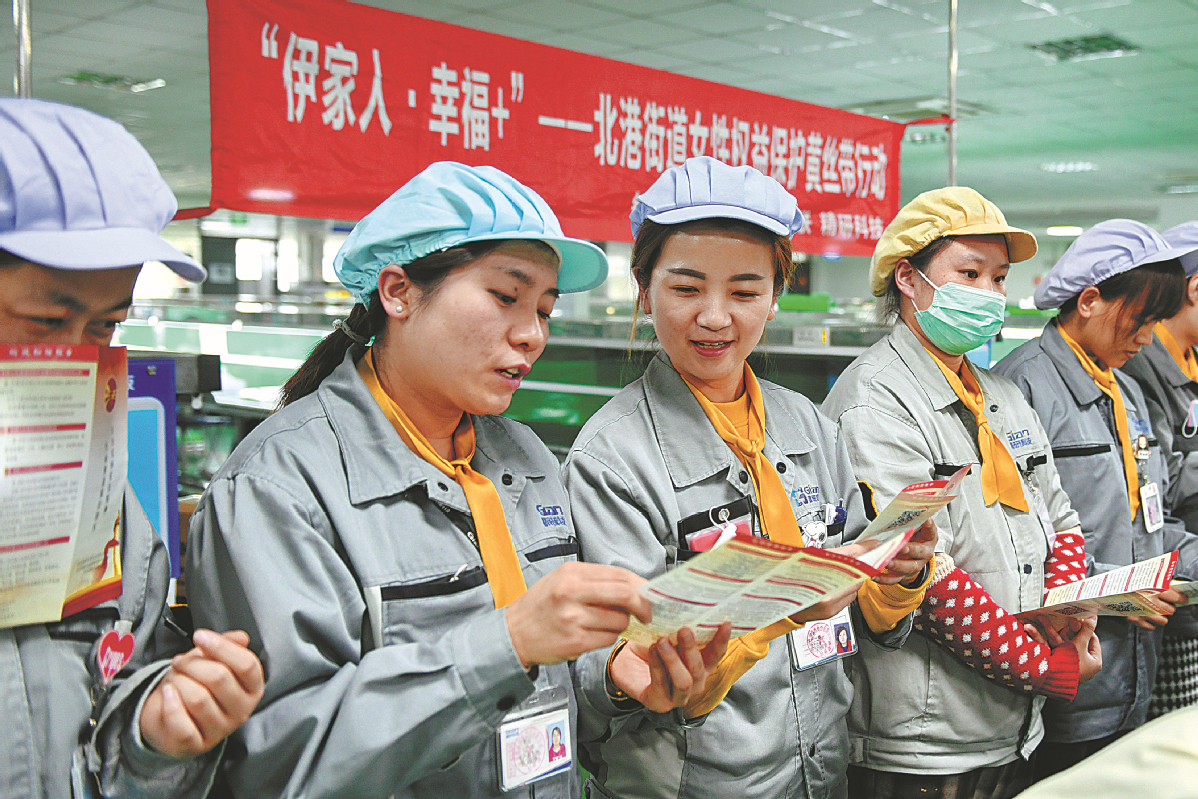Rule changes ease burden on parents


Widespread changes
Beijing is one of about 20 provincial-level entities that have decided to extend maternity leave or add parental leave to their newly revised family planning regulations.
After the adoption of the third-child policy in August, the extra measures were rolled out as part of moves to ease the burden of having a newborn and also to encourage families to have more children.
Some regions have formulated more-detailed plans. For instance, in the eastern province of Zhejiang, new mothers of an only child are entitled to an additional 60 days of maternity leave, while those with a second or third child can take 90 more days, according to the province's revised family planning regulations published in November.
"Extending maternity leave and introducing child care leave will certainly play a positive role in helping new mothers recover physically and mentally," said Liu Junhai, a law professor at Renmin University of China in Beijing.
"The new policies also convey a clear message that the burden of caring for babies should not solely fall on women, and fathers are encouraged to shoulder more responsibility in rearing children."
Su Yilin, mother of a 2-year-old girl in Shanghai, said her husband has taken the new five-day leave because the family's nanny has taken time off ahead of the Chinese New Year holiday, which falls at the start of next month.
"I know my schedule will be hectic during that period, so it's a big relief that he is willing to step up and care for the baby," Su said.
Mu Guangzong, a professor at Peking University's Institute of Population Research, said that the extension of maternity leave in several regions is a significant move toward building a "fertility friendly" society.
"However, lengthened leave will likely impose heavier costs on businesses," he told Legal Daily.
"Local governments should pay attention to the demands of businesses and consider allocating public funds to make up for their losses."
























